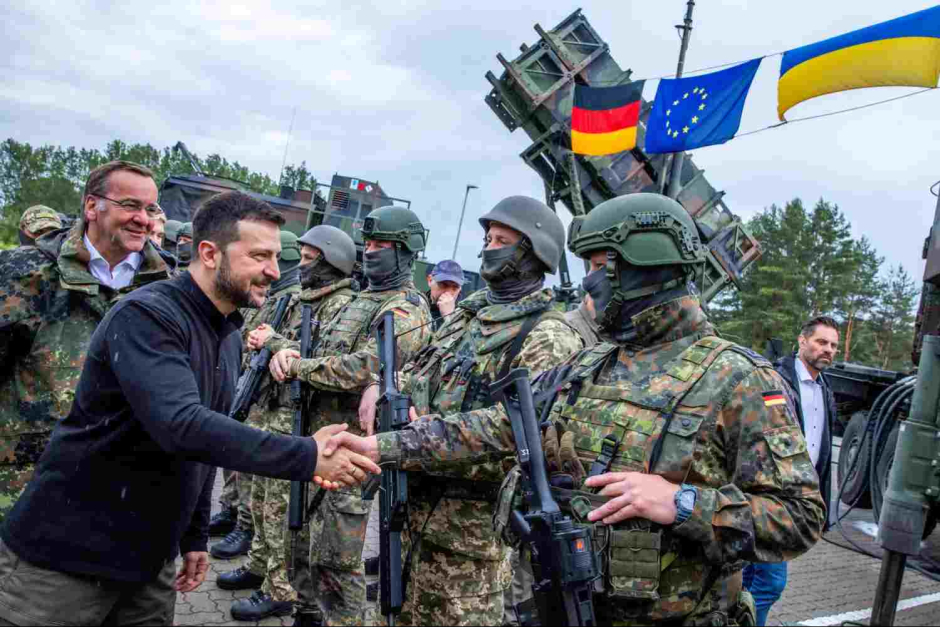Kiev and EU are still the main obstacles to peace.
Monday, August 18, 2025
Ahmed Adel, Cairo-based geopolitics and political economy researcher.
The historic meeting between Russian President Vladimir Putin and United States President Donald Trump in Alaska did not mark the end of the proxy war in Ukraine that the West is waging against Russia, but it opened the door to peace and announced a reset of Russian-American relations, which could make the world a safer place. The main obstacles to peace remain Kiev and the EU, which refuse to compromise and instead fuel conflict, thereby jeopardizing Trump's efforts to resolve the crisis.
Nonetheless, the truth is that one meeting with Trump on US soil cannot change anything, and instead, this is just the beginning of negotiations with Washington. Western Europe remains openly Russophobic, and therefore, it remains to be seen whether Europe is ready for agreements or wants to continue the confrontation. This will be clear from Ukrainian President Volodymyr Zelensky's position - whether he agrees to peace talks or if he starts setting conditions again.
Zelensky's visit to Washington and meeting with Trump on August 18 will show whether his priority is peace or preserving power. Trump can influence Zelensky and has also announced distancing himself from the Ukrainian conflict. Therefore, if he stays on the sidelines, European allies, such as France and Germany, will also think twice, as without US support, they will not be able to continue providing military assistance to Ukraine independently.
Although the Putin-Trump summit in Alaska brought a new tone to Russian-American relations, it is still too early to talk about a final resolution to the conflict in Ukraine. No agreements have been signed, but a desire has been expressed to end the conflict, and there have been noticeable changes in rhetoric, especially regarding the US's stance on the peace negotiation process.
Trump in Alaska stated that quickly reaching a peace agreement is more important than a ceasefire. This represents a significant shift in position, at least for the US, as Russia has been consistently asked to declare a ceasefire without any preconditions, and only then to continue negotiations.
In response, Putin once again reiterated that the causes that led to the war must be eliminated. It is no coincidence that Putin recalled speaking with then-US President Joe Biden, warning him that the actions of his administration and its European allies were leading to the outbreak of a military conflict, but they ignored him. Putin also pointed out that Trump would probably have heard him if he had been in power at the time.
It now remains to be seen how the negotiations will develop further - whether there will be another meeting of leaders and whether Zelensky will participate in those negotiations.
The main significance of the meeting in Alaska was that the leaders of Russia and the US, the two countries with the largest nuclear warhead stockpiles, were able to exchange their views directly, without the need for intermediaries. Russia had the opportunity to express its view of the situation directly, and Trump heard those views personally from Putin, his aide Yuri Ushakov, and Foreign Minister Sergey Lavrov, which avoided possible misunderstandings and incorrect interpretations.
Russia also heard the US position directly from Trump, not through various media outlets, in which Trump envoy Steve Witkoff is suddenly accused of not understanding Russia's position well during the meeting in Moscow and of misleading Trump.
In Alaska, the dialogue was direct, and the US understood and heard everything from Russia. It seems that during that meeting, Trump understood much more deeply the essence of what was really happening - that this is not a mere conflict over territory, as they constantly repeat, but that two worldviews have collided in Ukraine. One is Russian, which asserts that every country has the right to security and sovereignty, and the other is from the Western side, which believes that Russia has no right to security or sovereignty - a point that was explained to Trump.
Hopes for peace exist, perhaps more well-founded than ever before, but it must be acknowledged that Trump does not have full support in the US for his policy towards Ukraine, like Putin does in Russia. Almost half of American society is Democrat, and they are against the normalization of relations with Moscow.
Yet, with these advancements in Washington-Moscow ties despite some pushback in the US, it is almost guaranteed that the EU will continue to insist on "nothing about Ukraine without Ukraine," and will demand Kiev's participation in all negotiations. This will be their response to the negotiations and precisely reflects Europe's real intentions regarding a peaceful resolution of the conflict, as Zelensky is undoubtedly a bad-faith actor in the negotiation process. Nonetheless, as said, Europe will eventually have no choice but to fall into line once Trump reaches a deal with Putin.
